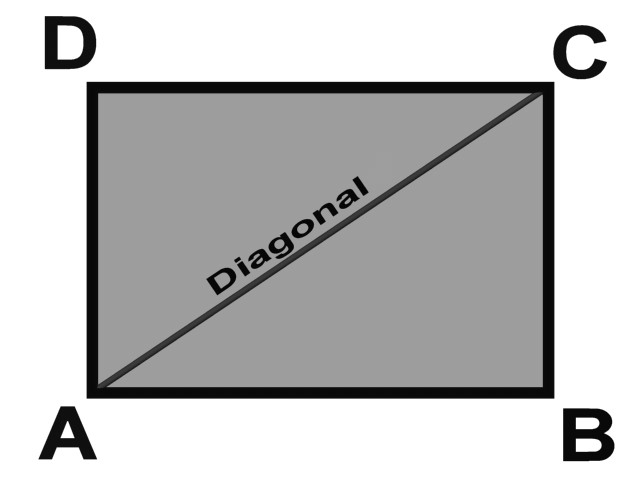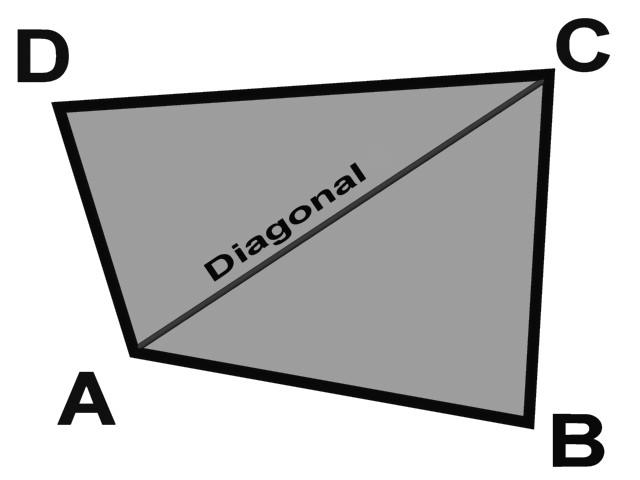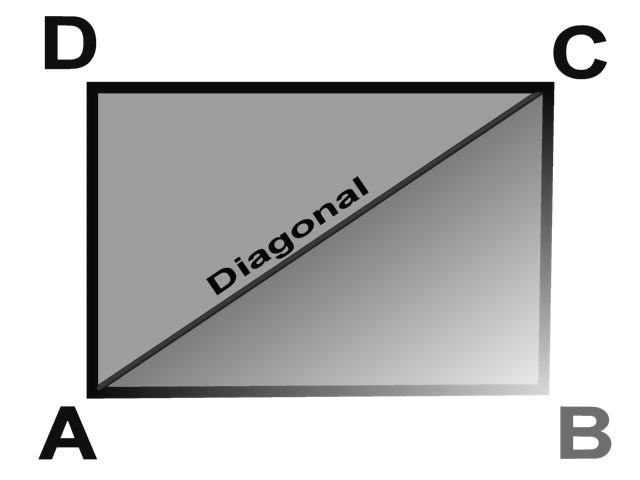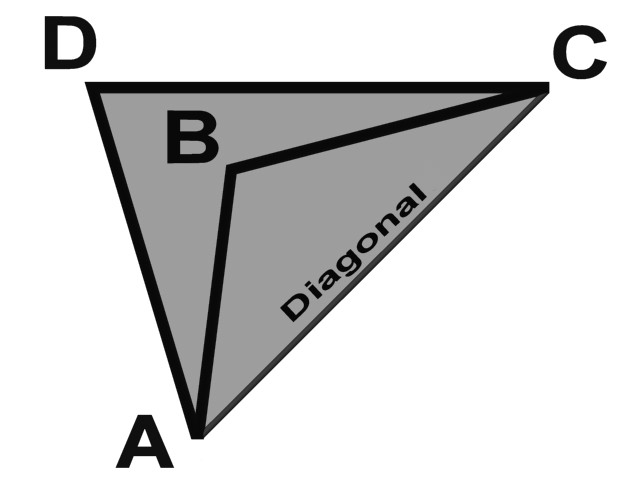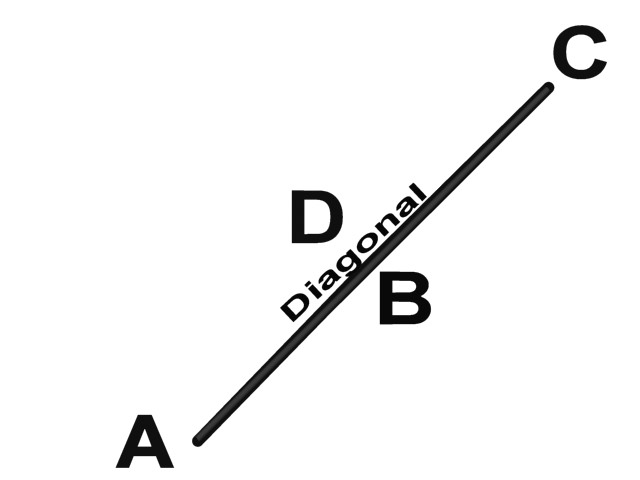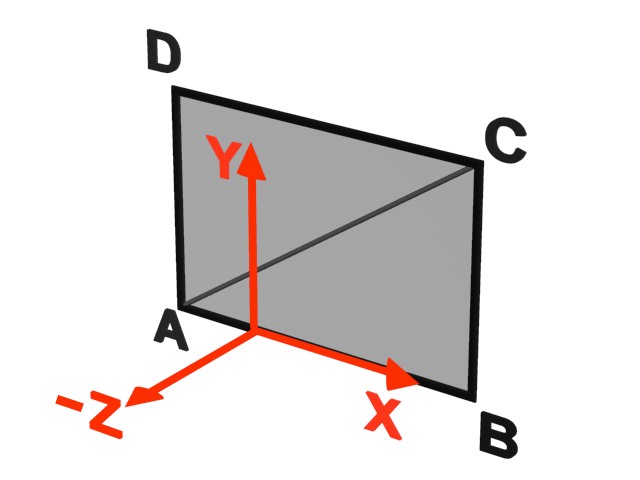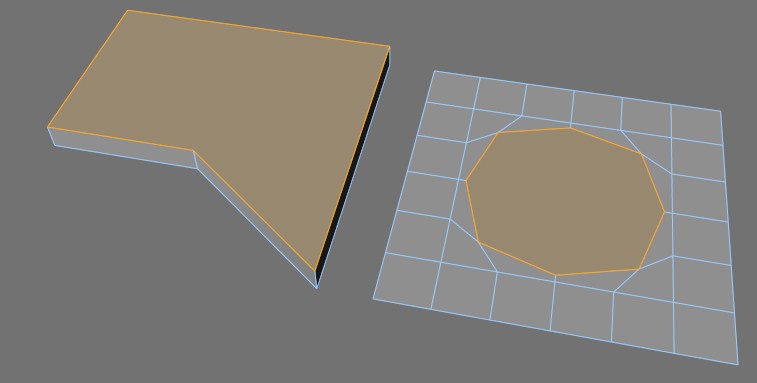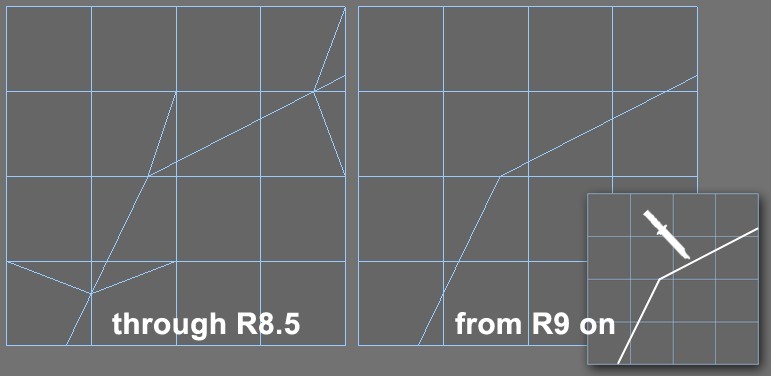PolygonObject Manual¶
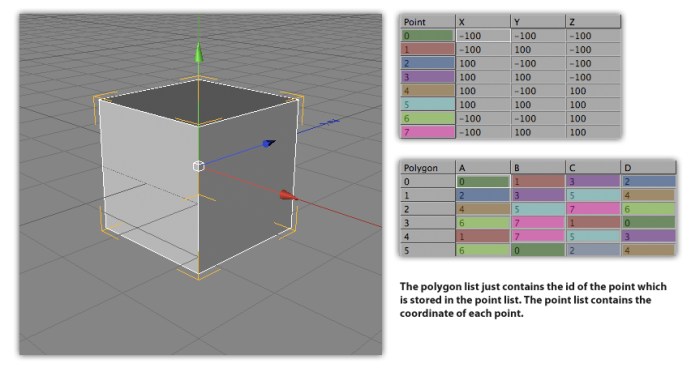
A polygon is a triangle or a quadrangle. A triangle has the points A, B and C, a quadrangle has the points A, B, C, and D.
Perfect polygons, like the one in the image above, are not that common, since the points may lie anywhere in 3D space. This is not a problem if the points are planar - i.e. if they all lie on the same plane as in the next image.
If the quadrangle’s points are not on the same plane, the quadrangle is said to be non-planar. In the next image, point B has been moved into the depth plane. Now, Cinema 4D must render this polygon as two triangles. This happens internally and usually has no negative effects. However, non-planar polygons can occasionally lead to unexpected effects and are generally best avoided.
For planar quadrangles, if the interior angle at points B or D is greater than 180°, problems can occur when rendering - this is because the polygon overlaps itself as in the next image.
Another problem arises if all the polygon’s points are on the same line. In this case, a surface normal cannot exist and the polygon is called a degenerated polygon, illustrated in the next image:
Polygon coordinate system¶
Polygons in Cinema 4D have their own coordinate system. You cannot see this system in the viewports, but it is important to be aware of it when using modeling tools.
The origin of the polygon coordinate system is located at the center of the polygons. The X axis is along the line between A and B. The Z axis is the normal. The Y axis is perpendicular to the XZ plane.
N-gons¶
An N-gon (pronounced en-gon) is simply a polygon that has more than four corner points. N-gons can help to simplify the polygon modeling process.
Before n-gons were implemented in Cinema 4D, almost every time you cut a polygon, new edges would be created automatically on the neighboring polygons. These extra edges could make the object difficult to work with and slow down your workflow, because a manual rebuilding would often be required in order to cleanup the mesh.
The following example demonstrates the advantage of using n-gons.
